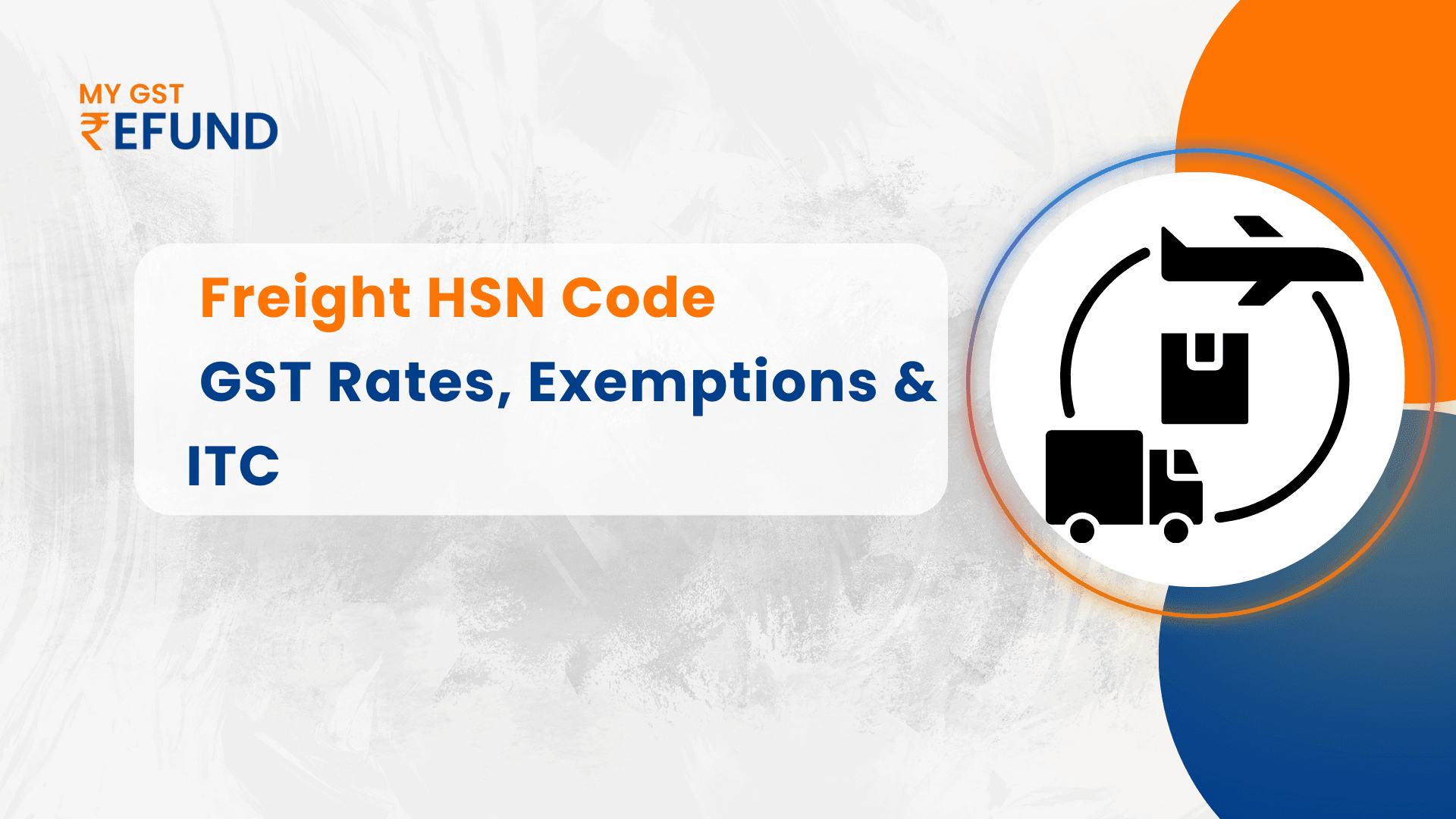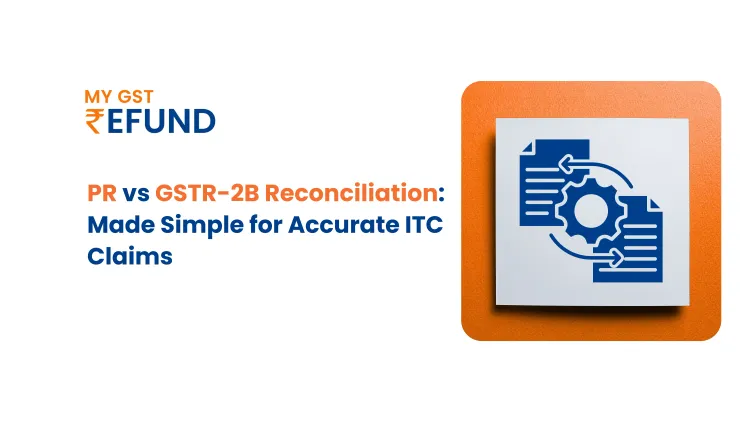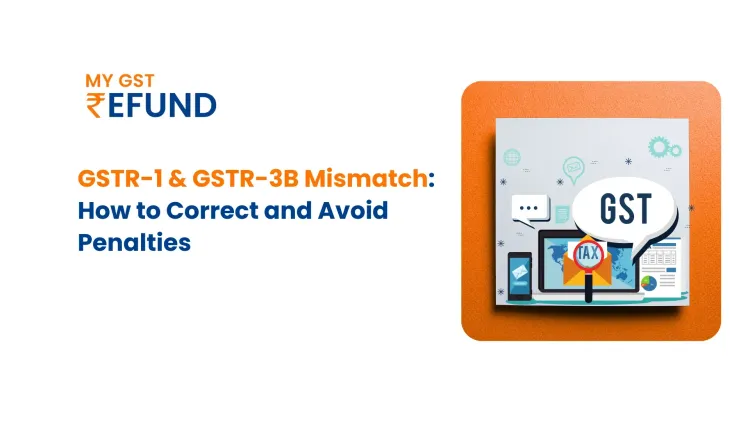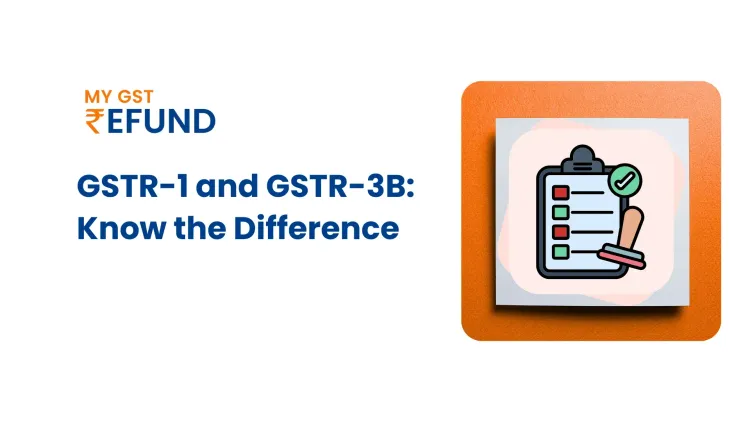HSN Code for Freight Charges Under GST
Published on: Mon Sep 15 2025
Bio (Reveal/Hide)

What is an HSN Code?
The Harmonized System of Nomenclature is referred to as HSN. It is a global system of product and service coding that aims to standardize taxes. Businesses can accurately classify their transactions under GST with the use of HSN codes for products and SAC codes for services.
Importance of HSN Code in GST Compliance
HSN codes are the foundation of GST compliance, although they may appear to be just a collection of digits. Selecting the appropriate HSN/SAC code has a direct influence on your taxes, refunds, and general business compliance; it's not just a formality.
For GST compliance, an accurate HSN/SAC code is essential. It guarantees:
Correct Tax Application: You may charge the correct GST rate and avoid expensive mistakes and legal problems by using the correct HSN/SAC code.
Compliance and professionalism in Invoicing: Standardized, expert, and fully compliant with GST regulations are the results of using the appropriate code.
Faster Refunds: Exporters' cash flow is improved when refund claims are processed more quickly due to accurate codes.
Stress-Free Audits: You can avoid fines, follow-up inquiries, and other annoyances by using the correct codes during tax audits.
The Importance of Correct Freight HSN Codes
Freight is one of the most common services for businesses. From raw material supply to export shipments, freight charges appear everywhere. Using the correct freight HSN code helps both service providers (transporters) and service receivers (businesses) comply with GST law and claim input tax credit (ITC).
Understanding Freight in GST
Since July 1, 2017, when the Goods and Services Tax (GST) system went into effect statewide in India, freight services have been included in it. This new tax system gave the transportation industry a single tax structure by replacing numerous earlier indirect levies.
Meaning of Freight and Transportation Services under GST
Freight - Simply explained, freight is the expense paid for transferring products from one place to another. It is the fee you incur to get your items delivered.
Transportation services under GST - It includes the transportation of products by air, sea, rail, or road. GST is applied to all such services, and the applicable tax is determined.
Applicability of GST on Freight Charges
GST applies when:
- A Goods Transport Agency (GTA) provides transport services.
- Freight is charged separately in invoices.
- Services are provided domestically or internationally (with certain exemptions).
Common Scenarios Where HSN Code is Required
- Tax Invoicing: HSN codes must be included on most tax invoices to ensure GST compliance.
- GST Returns: Businesses must report an HSN-wise summary of their sales in their GSTR-1 and GSTR-9 returns.
- Imports and Exports: An 8-digit HSN number is necessary for all international business transactions and customs clearance.
- GST Rate Determination: The HSN code is necessary in order to ascertain and apply the correct GST rate to a good or service.
- GST Registration: During the GST registration process, HSN/SAC codes are required to specify the kinds of supplies a company utilizes.
Detailed Explanation of Freight HSN Code
Freight services are classified under Chapter 99 (Services). The most important codes are:
9965: This is the broad SAC code for all goods transport services.
996511: Use this for general road transport services for goods.
996791: This specific code applies to road transport services by a Goods Transport Agency (GTA).
996512: Use this for services involving the transport of goods by railway.
996521: This code is for goods transported via ocean or coastal waters.
996522: Use this code for goods transported through inland waterways.
996531: This code is used for all air transport of goods, including parcels and letters.
996513: This code is for the transport of goods like gas and petroleum via pipelines.
9968: Postal and courier services
Difference Between GTA and Other Freight Services
- GTA (Goods Transport Agency): Transport service provider that issues a consignment note. Taxable under GST.
- Non-GTA (like individual truck owners): If no consignment note is issued, service is not considered GTA and may be exempt.
Table: Freight HSN Codes
| SAC Code | Applicable GST Rate |
|---|---|
| 996791 | 5% (without ITC) or 18% (with ITC) |
| 996512 | 5% |
| 996521 | 5% |
| 996522 | 5% |
| 996531 | 18% |
| 996513 | 5% |
| 9968 | 18% |
GST Rate on Freight Services
Depending on the kind of service and the mode of transportation, freight services have different GST rates. As a result of the 56th GST Council meeting, the most important recent amendments apply to Goods Transport Agencies (GTAs).
Applicable GST Rates
There are two different GST rates for freight services:
- 5% GST (Without Input Tax Credit - ITC):
A goods transport agency can choose a 5% tax, but the buyer pays it, and the agency can't claim credits. This same 5% tax also applies to shipping by train, pipe, or boat.
- 18% GST (With Full ITC):
GTAs have the option to charge an 18% GST rate and can claim full ITC on their business inputs. In this case, the GTA itself is responsible for paying the tax under a Forward Charge Mechanism.
GST 2.0 Rates for GTA
According to recent rulings by the GST Council, a Goods Transport Agency (GTA) can choose between two GST rates for its services: an 18% rate that permits the full Input Tax Credit (ITC) or a 5% rate that does not permit the claim of ITC.
The following summarizes the main ideas of GST on GTA services
GST Rates and Mechanism
- 5% GST (Reverse Charge Mechanism - RCM): This is the default option. If a GTA chooses this rate, they cannot claim ITC on their business expenses (like fuel, vehicle repairs, etc.). The GST is paid by the service recipient (the business hiring the GTA) under the RCM.
- 18% GST (Forward Charge Mechanism): A GTA can opt for this higher rate and, in return, they can claim full ITC. In this case, the GTA itself is responsible for charging and paying the GST to the government. This is a forward charge. This option is beneficial for GTAs with significant ITC to claim.
Choosing an Option
A GTA must declare its choice of rate at the beginning of each financial year. Once chosen, it cannot be changed during the year. This provides stability and clarity for both the GTA and its clients.
Exemptions
Not all road transportation services are subject to GST. Exemptions include:
- Transport of specific goods, such as agricultural produce, milk, salt, food grains, newspapers, and defense equipment.
- Road transport services that a GTA or a courier agency does not provide.
- The hiring of a vehicle is provided to the GTA.
- Transport of used household goods for personal use.
How You Pay the Tax
The way the tax is paid depends on which option you choose:
- With the 5% option, the customer who receives the transport service is responsible for paying the tax to the government. This is called the "reverse charge mechanism."
- With the 18% option, the transport company itself is responsible for charging the tax to the customer and paying it to the government. This is called the "forward charge."
Make Your Choice Annually. Whichever option you choose, you must declare it at the beginning of each financial year. You can't switch back and forth during the year
This change has been introduced to reduce confusion and bring stability in how GTA services are taxed under GST.
Exempt from GST
Used Household Goods: Transporting used personal household items is exempt from GST.
Vehicle Hiring: Services involving the hiring of a vehicle to a Goods Transport Agency (GTA) are also exempt.
In a few crucial situations, freight services are free from GST:
Transport of Specific Goods: Goods are excluded from GST when they are transported, including food grains, milk, salt, agricultural products, newspapers, and humanitarian supplies.
General Road Transport: Items shipped by road are exempt, but this excludes services provided by the Goods Transport Agency (GTA) and couriers.
Freight Charges HSN Code and GST Rate: Case Examples
Example1:Domestic Freight
Through a GTA, a textile producer ships its products from Delhi to Mumbai.
Code for HSN: 996791
GST is 18% with ITC or 5% without it.
Example 2: Freight Import/Export
An exporter sends goods to the USA by sea.
Code for HSN: 996521
Since exports are zero-rated, GST is not applicable.
Example 3: Small Businesses
A small trader hires a local truck owner (no consignment note).
HSN Code: Not applicable as GTA is not involved
GST: Exempt.
ITC (Input Tax Credit) on Freight Services
Eligibility of ITC
- This is to be revised to 18%.
- The two valid options for a GTA are 5% (without ITC) and 18% (with full ITC), but ITC is only available when the 18% rate is chosen.
Conditions Where ITC is Not Available
- If GTA opts for 5% GST, ITC cannot be claimed.
- If freight is used for exempt supplies.
- If invoices do not mention the proper HSN code.
Importance of Compliance
Correct HSN code on invoices ensures:
- Smooth ITC claim.
- No disputes during audits.
- Easier refunds for exporters.
How Exporters Benefit from MYGST Refund
Exporters find freight GST a nightmare-separate HSN codes, changing rates, refund documents, and ongoing departmental inquiries. MyGST Refund makes everything easy.
- Intelligent Automation: Get the correct HSN/SAC code and GST rate instantly, eliminating delays or rejections.
- Simple Refunds: Error-free claim preparation saves hours of manual effort.
- Professional Assistance: Rectify ITC mismatches, classification differences, and GST notices with professional assistance.
- Single Window Solution: Manage GST filing, refunds, HSN/SAC code, and compliance under a single umbrella.
Through MyGST Refund, exporters are able to focus on business growth while compliance continues without an interruption.
Frequently Asked Questions
Q1: Is GST applicable to freight charges always?
No. Freight for agricultural produce, milk, salt, and exports is exempt.
Q2:What is the exact HSN code for freight charges?
Depending on the route of transportation, freight rates are classified under several HSN/SAC codes:
Goods Transport by Road (GTA): 996791
Transport of Goods by Rail: 996511
Transport of Goods by Air: 996531
Transport of Goods by Sea (Inland): 996521
Q3: How is GST on freight calculated?
GST = (Freight value × GST rate). Example: Freight ₹10,000 via GTA at 5% → GST ₹500.
Q4: What is the difference between freight and courier services under HSN?
Freight = bulk goods transport (HSN 9965/996791).
Courier = small parcels & documents delivery (HSN 9968).
Q5. Does the 18% rate apply to GTA-facilitated goods transportation?
Goods transported via GTA will still be subject to 5% merit-based taxes without the ITC. The GTA will, however, be able to charge GST at the regular rate of 18% with full ITC.
Q6. Given the significance of this industry, why not completely exempt GTA services from GST?
The service provider is unable to claim ITC when the service is exempt. This raises their price and increases the expense of the service. Additionally, where necessary, particular exclusions have previously been granted, including transportation of necessities (B2C), such as milk, fruit, etc.
Related Posts





